ON ROYALTY
BRITAIN'S KINGS & QUEENS
“Even on the most exalted throne in the world we are only sitting on our own bottom.”

“Even on the most exalted throne in the world we are only sitting on our own bottom.”
Although by and large the British royal family loathes the mass media, the usual response of courtiers was, I think, one of curiosity. When I explained that I wanted to discover how such an ancient institution survived in a modern country their usual response was 'Well, I shall be interested to read what you find out.' I went through the motions of requesting an interview with Queen Elizabeth, but without any conviction. I was, however, able to talk to the Duke of Edinburgh, to the Prince of Wales, to some of the queen's closest friends and to numerous courtiers, officials and dissidents. I spoke at length to intimates of other European royal families, and to the Queen of Denmark, Margrethe.
Early on, one of Prince Charles's friends had cautioned me: 'Have you any idea what you're getting into? This is much more political than anything to do with politics.' Perhaps so. But I fear that much of the politcking was above my head. Once day I did receive a call from Prince Charles's office, inviting me to spend a few days at Sandringham. I assumed this was in connection with a request to interview him, but was told it was just a social matter - every year the prince gathers a group from the arts world.
I pointed out that there would be something of a conflict of interest - if I came along and then wrote something, it would surely be a breach of trust. 'Oh don't worry about it,' said the social secretary. But anything I saw and heard would be bound to figure in what I wrote, I protested. 'We're really not concerned,' she said. Well I eventually thought to myself, you may not be bothered about it, but I am. Even though she repeated the invitation, I decided not to go.
Then, to my amazement, a year later, the same thing happened. You do realise that I'm still working on this book, don't you, I said. 'We know all about that,' she said. But the same considerations apply, I replied. 'Don't worry about it. Do come.' And so I did. Aspects of the visit - the swimming expedition which involved a group of us processing with the Duchess of Cornwall through a nudist colony, the expression on David Hockney's face when the Prince of Wales asked him to look at his watercolours, Charles's recitation of a monologue taught him by, if I recall correctly - it was late at night after dinner - Barry Humphries, or the bizarre spectacle of one of the country's best-known character-actresses and apparent lefties suddenly erupting into 'Three cheers for the Prince of Wales' over dinner - will have to wait.
“ If you go back far enough, just about anyone with European ancestry is descended from royalty. Calvin Coolidge could trace his descent from Charlemagne, and a mere twenty-two generations separated Walt Disney from Edward I ”
Jeremy Paxman
